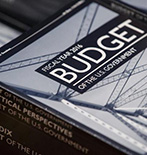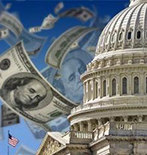The Private Sector Can Reform Social Security's Disability Program
Social Security's disability program is in bad financial shape. A private sector reform, modeled after a program that's been around for nearly 35 years, would provide the disabled and survivors with better benefits while helping remove some of the strain from Social Security.
A New Bill in Texas Could End Two Wind Energy Mandates
Texas was one of the leaders in imposing the renewable portfolio standard requiring power generators to use a specific amount of wind energy. And thanks to new legislation, the state may be one of the first to repeal that mandate.
There's 'No Sugarcoating' Health Insurance Exchange Failures
There's no sugarcoating how badly many of the state Obamacare exchanges have failed, and the problems are only just beginning.
Backsliding on Spending Restraint
If Republicans backslide over spending restraint, they will betray their voters, devalue their political brand, and validate the accusations of their sternest Tea Party critics.
If the Trade Deal Fails Blame President Obama and His Legacy of Mistrust
President Obama's Trans Pacific Partnership agreement and Trade Promotion Authority legislation are in trouble, but it's less because of the merits of TPP and TPA and more because he can't be trusted to live by his promises.
Hillary Clinton Makes More in One Speech Than Most CEOs in a Year
History has seen a long list of political demagogues who talk about the evils of capitalism and helping the poor while living in the lap of luxury—and picking taxpayers’ pockets to stuff their own.
A Down-Payment On Americans' Electronic Privacy
Updating ECPA for the Internet Age would allow Congress to show that it is sensitive to Americans’ privacy concerns and to reaffirm our Fourth Amendment protections.
Big-Spending Republicans Haven't Learned Their Lesson Yet
Some big-spending Republicans want to break the agreed-to spending limits and their campaign promises to be fiscally prudent by increasing government spending. If they do, voters could boot them out of office, just like they did in 2006.
The High Cost of Inventing New Drugs--And of Not Inventing Them
The cost of developing new prescription drugs is very expensive—a process made even more expensive than it has to be because of excessive government restrictions and limited patent life. However, not developing new drugs can also be expensive, both in financial and human costs.
How the Food Stamp Program Is Like the U.S. Export-Import Bank
The U.S. Export-Import Bank is one of the best examples of cronyism: we fund other countries to buy our products. Well, that's similar to what we do with the farm bill and the food stamp program.









